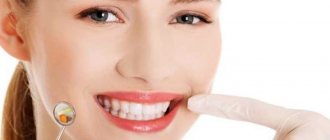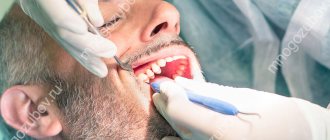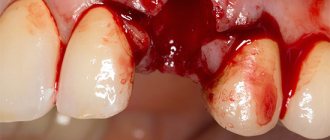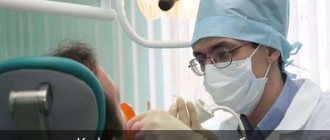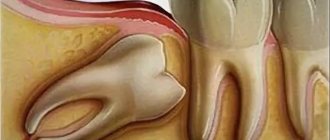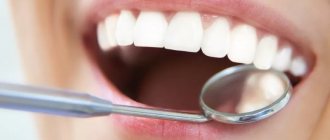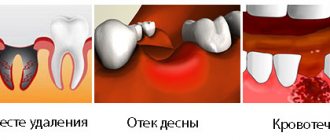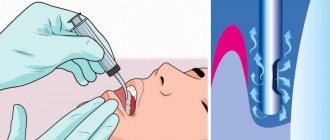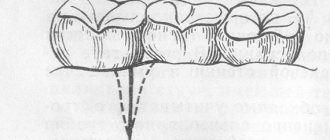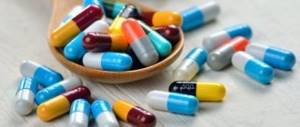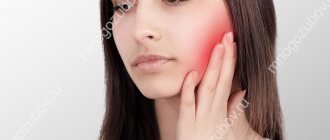Is it possible to drink alcohol after tooth extraction?
Content:
- Is it possible to drink alcohol after tooth extraction?
- Why you shouldn't drink alcohol after tooth extraction
- How long should you not drink alcohol after tooth extraction?
- Other dental situations when drinking alcohol is prohibited
Such a small dental operation as tooth extraction at the Center for Modern Dentistry affects a person’s daily life. One of the most common questions asked by a dental surgeon: is it possible to drink alcohol after tooth extraction
The implant may not take root...
To begin with, let’s understand that an implant is a non-living structure, so it cannot take root anywhere.
The body may not notice it and due to mechanical retention in the bone tissue it is retained. In other words, the bone does not see the implant and during the healing process tightly covers it (the implant). Yes, indeed, in Russian and world practice, about 0.05% of all installed dental (dental) implants are not integrated.
Moreover, I will say that the number of complications directly depends on the implant manufacturer, the qualifications of doctors, equipment, and on the patient himself.
With proper planning of the operation, the correct choice of dental implants, and the final result, you can guarantee a 100% result for life.
Is it possible to drink alcohol after tooth extraction?
Alcoholic drinks increase blood pressure and increase blood flow to the socket of an extracted tooth. This provokes heavy bleeding, which leads to the blood clot being washed out of the socket. The bleeding does not stop for a long time: a repeated visit to the clinic is often required. If a blood clot falls out of the socket, food gets there and microorganisms develop. Inflammation, swelling, and severe pain begin, which indicates the onset of a disease such as alveolitis. Repeated intervention by a dental surgeon will be required.
In addition, complex surgical interventions (removal of an unerupted wisdom tooth, sawing of roots) require the prescription of antibiotics. Alcohol should not be taken for the entire period of taking antibiotics: it inactivates the effect of antibacterial drugs. This means that the drugs will not have their antimicrobial effect, and the inflammation in the socket will not go away. In this case, the recovery period will last for several weeks or months.
Do not self-medicate, consult a doctor!
Don't wait for your condition to worsen!
Sign up
After removal, the dentist prescribes painkillers to reduce discomfort. Ethyl alcohol reduces the effect of such drugs. This means that the patient will suffer from pain in the postoperative period.
Thus, due to exposure to ethyl alcohol, complications arise after dental surgery. Therefore, the answer to the question: is it possible to drink alcohol after tooth extraction will be clearly negative.
Festive table
When you see the table set for the holiday, your appetite will probably work up, but be careful with what you eat. The gum inflammation may subside enough to allow you to drink a glass of champagne, but the sockets and tissue around them will remain tender and vulnerable for a couple of weeks. The resorption period for sutures ranges from 3 to 14 days if the surgeon used an absorbable thread; otherwise, the sutures are removed after one to two weeks. During this period, you should give preference to soft foods and avoid dishes with a crispy crust, which may have sharp edges. Also skip the chips and look for fruits such as bananas and oranges, and as a snack, use, for example, canapés with pate and soft white bread. Avoid eating hot and spicy foods, which can cause inflammation of already sensitive gums.
Of course, after eating (starting the day after surgery), you should gently brush your teeth with a soft-bristled toothbrush, which will help remove any food debris that could cause infection or increase pain.
Just because you just lost your wisdom teeth doesn't mean you have to miss out on your holiday treats. Just take the necessary precautions to avoid complications and celebrate healthily without harming your health!
Why you shouldn't drink alcohol after tooth extraction
It is possible to extract a tooth in Moscow without complications if the patient follows all the prescribed recommendations. The ban on taking alcohol-containing products after removal is explained by the mechanisms of action of ethyl alcohol on the body. One of its actions is to dilate blood vessels.
Drinking alcohol-containing drinks after removal causes complications:
- Severe bleeding from the socket, which often cannot be stopped without medical intervention.
- Soft tissue swelling that disrupts facial symmetry.
- Ineffectiveness of medications prescribed by a doctor (for example, antibiotics, painkillers).
- Under the influence of ethyl alcohol, the load on the heart increases: the pulse quickens, and the strength and speed of contraction of the heart muscle decreases. Considering that many patients are afraid of dental interventions, the heart is put under double stress.
From all of the above, it becomes clear why alcohol should not be consumed after tooth extraction.
Alcohol before surgery: possible consequences
The strict ban on drinking alcohol before tooth extraction is due to many factors that can have an extremely negative impact on both the patient’s health and the course of the operation. You can see a number of problems below.
- Weak or completely absent effect of anesthesia;
- The recovery process after surgery takes much longer;
- Increased risk of inflammatory processes;
- Intoxication and the body’s rejecting reaction to medications.
IMPORTANT!
If a patient comes to an appointment while intoxicated, the doctor has the right to refuse admission. This is due to the fact that a drunk person can negatively affect the progress of the operation.
Other dental situations when drinking alcohol is prohibited
- Alcohol is prohibited after dental implantation, otherwise there is a risk of bleeding. Dental implantation is a major surgical procedure that often requires the administration of various medications that are incompatible with alcohol. When can you drink alcohol after dental implantation: until the sutures are removed from the gums, you should completely limit the intake of alcoholic beverages. In addition, the implantologist can give individual recommendations based on the characteristics of the clinical situation.
- You should not drink alcohol in the first hours after dental treatment. It is recommended to wait until the anesthesia wears off. Then you should check whether the filling is in the way, whether there are any painful sensations that the doctor did not warn about. Drinking alcoholic beverages “erases” some sensations in the oral cavity.
- Alcohol and dental anesthesia affect each other only if the patient took strong drinks the day before the dentist visit. In this case, anesthesia does not work well, or “freezing” will not occur at all. Alcohol after dental anesthesia is not prohibited. It is important to note that for many patients, visiting the dentist's office is stressful. This directly affects the heart muscle. Ethyl alcohol puts a lot of stress on the heart, so it is not recommended to overload the body with alcohol after medical interventions.
To avoid complications after dental procedures, it is recommended to stop drinking alcohol-containing liquids for a while. You should also strictly follow all the dentist’s instructions.
Recommendations
All alcoholic drinks contain ethyl alcohol. If you drink vodka, wine, cognac or beer, the liver takes on double the load. The body needs to absorb both the painkiller and the alcohol. The negative impact on the liver can be aggravated by the use of antibiotics, analgesics, and antihistamines. To avoid toxic shock, you need to follow these tips:
- You should avoid drinking alcohol if you are planning a dental visit on the same day.
- If your dental procedure involves the use of antibiotics, it is best to avoid drinking alcoholic beverages throughout the treatment.
- Before the appointment, it is necessary to inform the dentist about the presence of allergic reactions and medications used the day before.
- Remember that the success of a medical procedure depends on proper preparation. If you approach dental surgery irresponsibly, you may need additional anesthesia or repeated intervention.
There is no doubt that drinking strong drinks during dental anesthesia is extremely undesirable. If you want the procedure to be safe and painless, you should carefully read the above recommendations.
Don't be afraid of visiting the dentist's office. You can consult a competent specialist who will tell you how to properly prepare for the treatment process. A professional dentist will select an individual anesthetic and recommend the most effective method for a quick recovery.
Category Miscellaneous Published by kosmetik-dent
Postoperative period in diabetics
Patients who need to be especially careful after surgery are those with diabetes. When regularly using medications that regulate blood glucose levels, diabetics should check which medications are compatible
In such patients, wounds heal poorly due to the underlying disease. Therefore, any surgical intervention is associated with risk. Purulent wounds and abscesses are difficult to treat. To prevent this, it is necessary to maintain oral hygiene after surgery.
Patients with diabetes have weak immunity, and the body is unable to cope with infection, as it does in healthy people. In addition, some drugs that have an anesthetic effect contain adrenaline, which can adversely affect the well-being of a diabetic.
This is especially important to do after surgery. Alcohol interferes with the absorption of beneficial components
Doctors recommend that such patients refrain from drinking alcohol until the wound has healed completely. If you experience severe pain, bleeding that does not stop within 12 hours from the moment of tooth extraction, or if your body temperature rises, you should urgently consult a doctor. If necessary, a person is prescribed antibiotics and vitamins B and C. If an infection gets into the wound, you can rinse your mouth with a warm solution of furatsilin, a decoction of chamomile or calendula herbs. It is not recommended to use alcohol tinctures for rinsing.
What do dentists recommend?
The dentist makes recommendations based on the complexity of the procedure, the patient’s medical history and clinical case. For example, removing a wisdom tooth (in particular, impacted or dystopic ones) very often causes certain difficulties. Therefore, the doctor prescribes antibiotics, which helps prevent the development of inflammation. But, if the doctor has not prescribed additional treatment or procedures, do not try to speed up the healing process on your own by following the recommendations of friends or from the Internet.
Treatment at home without consulting a specialist can do more harm than good. You don’t want to lose a couple more teeth or get osteomyelitis of the jaw, do you? In order for the wound to heal normally, it is enough to follow the recommendations developed by dentists:
- do not immediately remove the cotton swab placed in the hole by the doctor: it is needed to stop bleeding and protect the open wound from infection. But you shouldn’t keep it for very long. 20 minutes is the optimal time,
- remember that brushing your teeth is allowed only a day after removal and very carefully: it is also not permissible to rinse your mouth. When rinsing, you can wash out the blood clot that forms in the socket, protecting it from pathogens and promoting a speedy recovery,
- give up a hot bath or sauna for two or three days: after visiting the gym and sections that involve physical activity, you can increase the flow of blood to the wound surface and increase blood pressure, which is extremely undesirable to do in the postoperative period,
- when stitches are placed on the wound, you cannot actively move your jaw, open your mouth wide, laugh hard, talk loudly, yawn or sneeze: in this case, the muscular system is actively involved and the stitches may come apart,
- eating is allowed only after 2-3 hours: in addition, for a certain time you need to eat liquid, puree or porridge food. Hard foods rich in hard fibers will injure the wound. Very cold, hot, and spicy foods have the same effect. They also need to be excluded from the diet. It is better to chew on the healthy side,
- do not pick at the wound with toothpicks or matches, do not check its condition with your tongue or fingers.
As for the actions immediately after the operation, there is no need to suddenly jump up from the chair in an attempt to leave the clinic faster. Sit for a while, catch your breath, calm down. Also, you should not go to the doctor in your own car. This is explained by the fact that the anesthesia used during removal can cause absent-mindedness and sometimes drowsiness. Therefore, it is better not to drive the car.
You forget that you need to see a doctor
Such situations, of course, arise if the patient drinks alcoholic beverages for a long period of time. Shifting the visit to the doctor by 1-2 days (after a month after installation of the implants) is allowed. But in the first week, visits to the doctor should be strictly day-to-day.
If a patient misses regular visits to the doctor, if the prosthesis is not adjusted, this can lead to disruption of the healing process of the implants and the functioning of the entire jaw system. For example, the bite changes due to improper closing of the jaws; the prosthesis will cause overload of the implants and the temporomandibular joint. Therefore, it is necessary to adhere to individual visit schedules.
Antibiotics are prescribed, which means alcohol is prohibited
When implanting teeth, antibiotics are often prescribed (if teeth were removed before installing implants, there was pronounced periodontitis and periodontal disease). But antibiotics and alcohol are not compatible - not only your attending physician will tell you this, it is also written in the instructions for almost all drugs. The consequences can be both relatively harmless (the medicine simply will not work) or very sad - even death. Alcohol is prohibited during the entire period of taking antibiotics, as well as for at least 4 days after.
Yes, not all antibiotics cannot be combined with alcohol. But most of them. Among the unpleasant consequences are palpitations, nausea, vomiting, increased blood pressure and general intoxication of the body.

